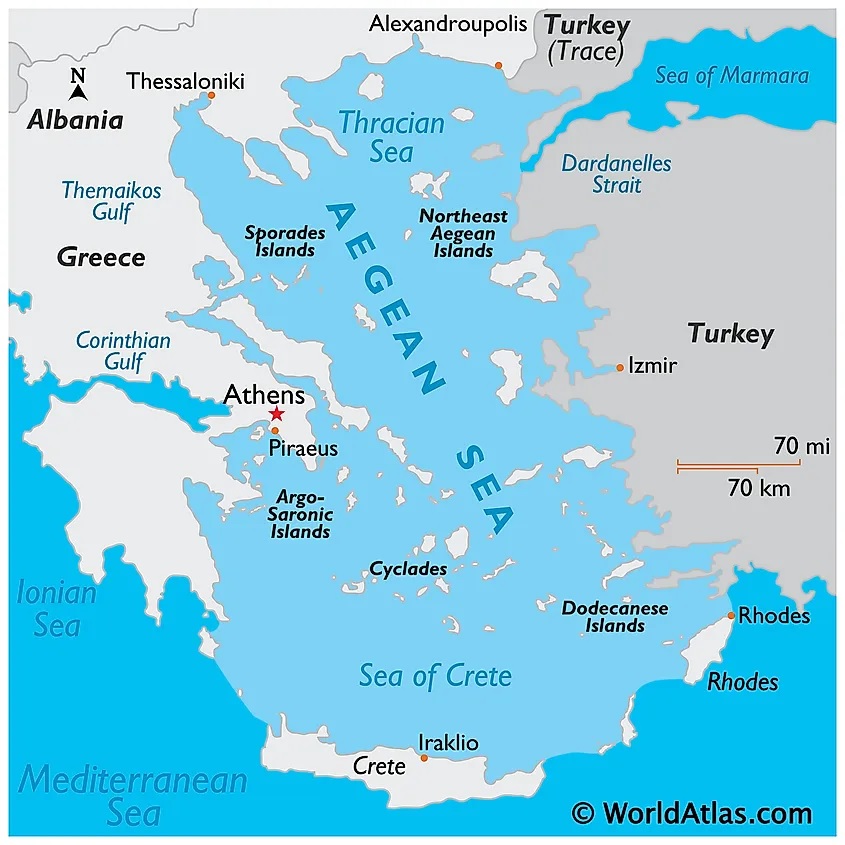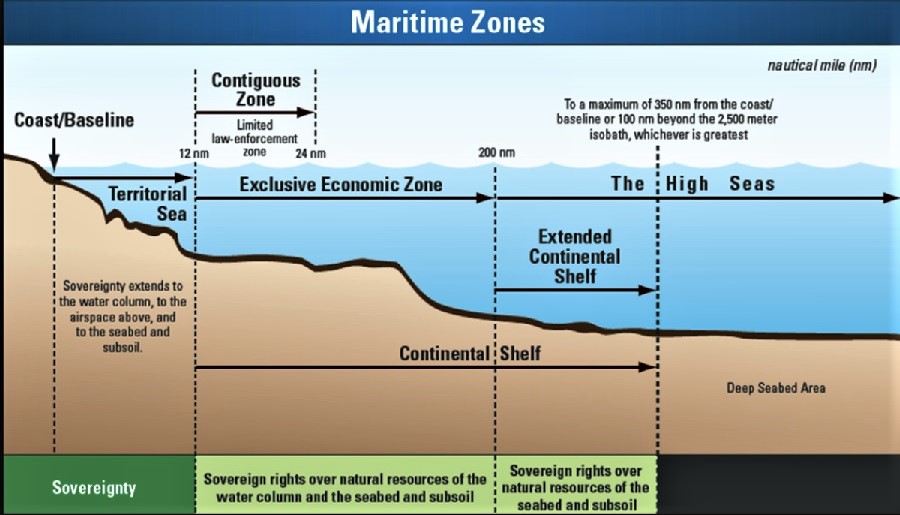7667766266
enquiry@shankarias.in
Greece and Turkey have had long-standing rival claims over the Aegean territory, even finding themselves on the brink of war over the issue.

According to the UNCLOS, the sovereignty of a coastal country extends beyond its land territory and internal waters upto territorial sea which is 12 nautical miles (nm) from the baseline of its coast.
As per the UNCLOS, the continental shelf extends to 200nm from the country’s coastal baseline but is within its continental margin. EEZs also extend to 200 nm from the coastline.

Both Turkey and Greece are members of NATO.
References